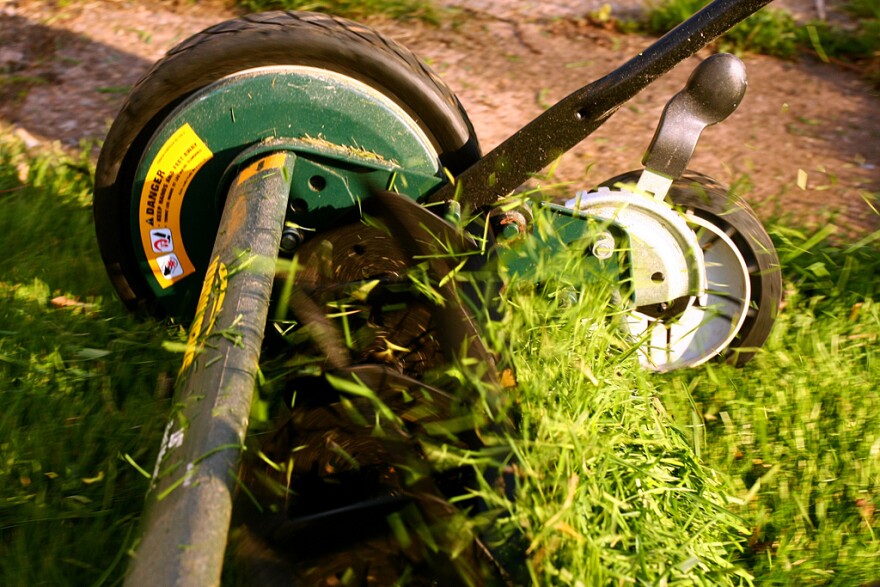During the summer months in Kansas City, it's common for the sweet scent of fresh-cut grass to waft through the muggy air.
And while that smell might be pleasing to some of us humans, two University of Missouri researchers say the newly shorn grass blades are none too pleased about it.
For more than 30 years, husband-wife team Jack Schultz and Heide Appel of MU's Christopher S. Bond Life Science Center have studied how plants react to stress.
For example, when a plant is wounded, it can sometimes release airborne chemicals to attract birds and other insects to try to eliminate pests that are causing the damage. So when we cut the grass, Schultz says the grass is trying to find something to help.
"One of the kinds of chemicals that plants produce when they're being attacked by insects are called 'volatiles' or odors that travel through the air," Schultz told Central Standard host Gina Kaufmann. "[Fresh cut grass smell] is the grass crying for help."
Plants can also release specific chemicals like nicotine, caffeine and mustard oil to deter pests from chowing down on their leaves. Appel says that researchers found that just sensing the vibrations of a caterpillar's chewing prompted plants to produce chemicals.
"When we treated leaves with the vibrations of caterpillar feeding and then later challenged them with real insects, those treated plants made many more chemical defenses," Appel says. "They made about 33-35 times as much chemicals."

And not only can plants release defenses for themselves when they're threatened, they can communicate threats to others. Schultz says that some of the earliest tests he and Appel ran became mixed up when caterpillar bitten "treated" plants were too close to untreated ones.
"If you put your untreated plants too close to the treated ones, they would respond as though they had been treated," Schultz said. "If they were all put in pots, they couldn't communicate through their roots or anything, so the only possibility was there was a signal traveling through the air."
For many years, scientists were skeptical about Appel and Schultz's research. But now it's been largely accepted and is leading some scientists to a new question: are plants sentient beings? Schultz says that he isn't a fan of that question.
"You'll find articles that extend these observations to a more cognitive place for plants," Schultz says. "Admittedly, plants are way more complicated and do much more sophisticated things than most of us know ... but it doesn't make them sentient."
Despite the fact that Schultz doesn't believe plants are sentient, he's a plant lover at heart. Appel says he keeps many plants in their home, and she keeps her own at work.
"I have about six different kinds of [carnivorous plants] in a tank, and I have them because they make me happy," Appel said. "I like just looking at them and being amazed at what plants can do."





